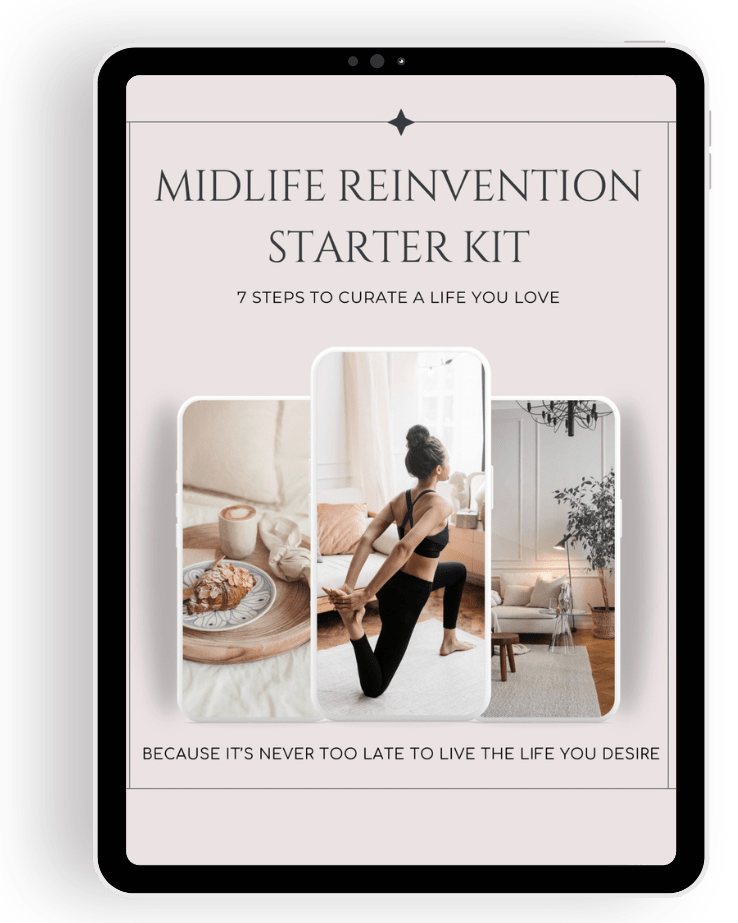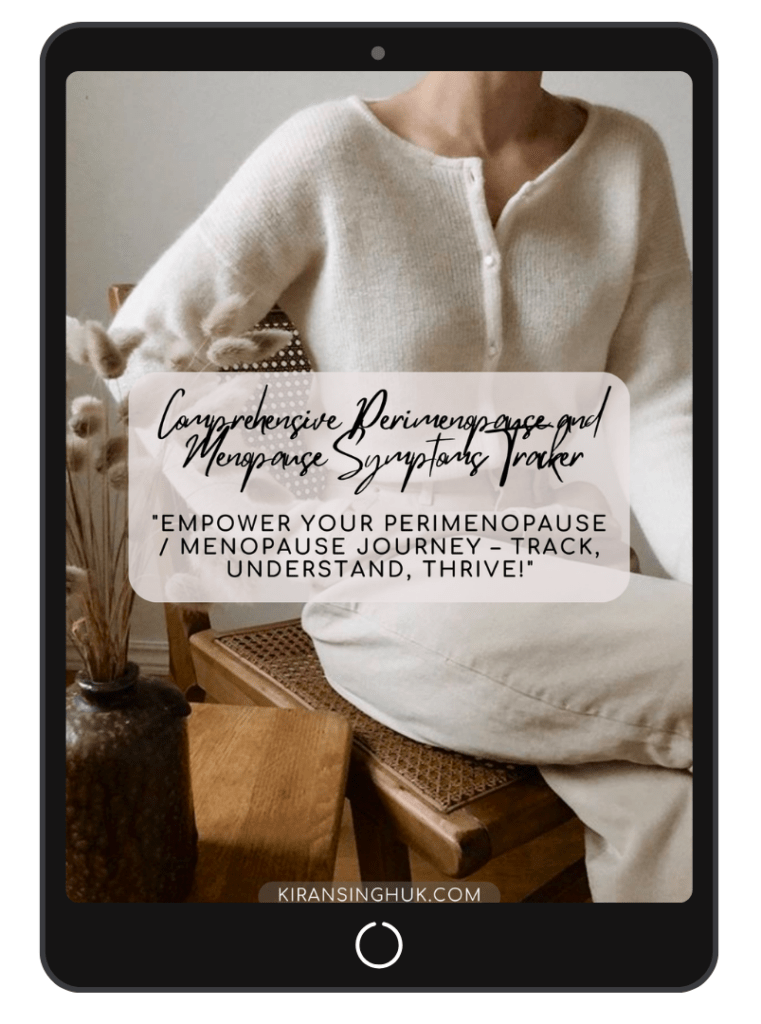Menopause is a natural life transition, yet its symptoms can sometimes feel anything but natural. The hormonal changes during perimenopause, menopause, and post-menopause affect nearly every system in the body, resulting in various physical, mental, and emotional symptoms. This guide explores the most common symptoms, their causes, and actionable strategies to manage them.

1. Hot Flashes and Night Sweats
Cause:
Hot flashes and night sweats result from fluctuating estrogen levels, which disrupt the hypothalamus, the brain’s thermostat. These sudden temperature surges are often accompanied by sweating, redness, and chills.
Management:
- Avoid Triggers: Limit caffeine, alcohol, spicy foods, and stress.
- Adopt Cooling Practices: Wear lightweight, breathable clothing and use a cooling pillow or fan.
- Herbal Remedies: Try black cohosh or red clover, which may help reduce hot flashes.
- Stress Reduction: Engage in yoga, meditation, or deep breathing exercises.
- Medical Support: Consider hormone therapy (HT) under medical supervision if symptoms are severe.
2. Irregular Periods
Cause:
During perimenopause, the ovaries produce less estrogen and progesterone, leading to irregular ovulation and unpredictable menstrual cycles. Periods may become heavier, lighter, or skipped altogether.
Management:
- Track Your Cycle: Use apps like Clue or Flo to monitor patterns.
- Nutritional Support: Increase intake of iron-rich foods (spinach, lentils) to prevent anaemia if periods are heavy.
- Medical Options: Discuss low-dose hormonal contraceptives or progesterone therapy with your doctor for symptom control.
3. Mood Swings, Anxiety, and Depression
Cause:
Estrogen plays a role in regulating serotonin and dopamine, the neurotransmitters responsible for mood and happiness. Its decline can result in emotional instability, irritability, or depression.
Management:
- Dietary Adjustments: Eat foods rich in omega-3 fatty acids (salmon, flaxseeds) and magnesium (nuts, bananas) to boost mood.
- Therapeutic Practices: Practice mindfulness meditation and gratitude journaling.
- Herbs and Supplements: Consider ashwagandha, Rhodiola, or St. John’s Wort (consult your doctor first).
- Professional Help: Seek counselling or cognitive-behavioural therapy (CBT) if symptoms are overwhelming.
4. Fatigue
Cause:
Fatigue during menopause can stem from poor sleep, hormone imbalances, and reduced energy production due to declining estrogen.
Management:
- Prioritise Sleep: Create a bedtime routine, avoid screens an hour before sleep, and use blackout curtains.
- Energy-Boosting Foods: Focus on complex carbs (quinoa, sweet potatoes) and lean proteins for sustained energy.
- Exercise: Gentle movements like yoga, Pilates, or walking can reduce fatigue and improve energy.
- Supplementation: Take B vitamins, magnesium, and adaptogenic herbs like maca root to combat fatigue.
5. Weight Gain and Metabolic Changes
Cause:
Estrogen affects fat distribution and metabolism. With its decline, fat tends to accumulate around the abdomen, and metabolic rates slow down.
Management:
- Strength Training: Build muscle mass with resistance exercises, as muscle burns more calories than fat.
- Intermittent Fasting: Consider time-restricted eating (e.g., 12:12 or 16:8) to improve insulin sensitivity.
- Balanced Diet: Focus on high-protein, high-fiber meals to support satiety and metabolism.
- Lifestyle Habits: Limit processed foods and sugary drinks, which contribute to weight gain.
6. Vaginal Dryness and Reduced Libido
Cause:
Lower estrogen levels reduce blood flow and lubrication to vaginal tissues, leading to dryness, discomfort, and a decline in libido.
Management:
- Hydration: Drink plenty of water to maintain mucosal hydration.
- Lubricants and Moisturisers: Use water- or silicone-based lubricants and vaginal moisturisers regularly.
- Omega-7 Fatty Acids: Incorporate foods like sea buckthorn oil, which supports mucous membrane health.
- Pelvic Floor Exercises: Strengthen pelvic muscles with Kegel exercises to enhance sensation and blood flow.
- Medical Options: Discuss vaginal estrogen creams, tablets, or rings with your doctor for targeted relief.
7. Bone Loss and Joint Pain
Cause:
Estrogen is crucial for maintaining bone density. Its decline accelerates bone resorption, increasing the risk of osteoporosis and joint pain. Inflammation during menopause can also exacerbate joint discomfort.
Management:
- Calcium and Vitamin D: Ensure daily calcium intake (1,200 mg) and supplement with vitamin D (800–1,000 IU) for better absorption.
- Weight-Bearing Exercises: Engage in walking, dancing, or strength training to promote bone health.
- Anti-Inflammatory Foods: Eat turmeric, ginger, leafy greens, and omega-3-rich foods like salmon to reduce inflammation.
- Supplements: Consider collagen, magnesium, or glucosamine to support joint health.
8. Memory Issues and Brain Fog
Cause:
Estrogen impacts brain function by supporting neurotransmitters like acetylcholine, which are vital for memory and cognition. Its decline can lead to difficulties concentrating, forgetfulness, and mental fatigue.
Management:
- Brain-Boosting Diet: Follow a Mediterranean diet rich in antioxidants (berries, olive oil, nuts) to protect brain cells.
- Mental Stimulation: Engage in puzzles, learning new skills, or reading to strengthen cognitive function.
- Sleep Hygiene: Prioritise high-quality sleep to consolidate memory and improve focus.
- Supplements: Omega-3s, B vitamins, and ginkgo biloba may support brain health.
9. Hair Thinning and Skin Changes
Cause:
Estrogen helps maintain skin elasticity and hair growth. Lower levels can lead to dry, thinning skin and hair, as well as a loss of collagen.
Management:
- Hydration: Drink plenty of water and moisturise your skin daily with products containing hyaluronic acid or ceramides.
- Nourishing Diet: Eat foods rich in collagen (bone broth, fish skin), vitamin C (citrus fruits), and biotin (eggs, almonds) for skin and hair health.
- Hair Care: Avoid harsh treatments and opt for gentle shampoos containing keratin or argan oil.
- Dermatology Options: Consider retinoids, peptides, or hyaluronic acid-based treatments for skin rejuvenation.
10. Sleep Disturbances
Cause:
Declining estrogen and progesterone disrupt the body’s natural circadian rhythm, leading to insomnia or fragmented sleep. Night sweats and anxiety can further exacerbate the issue.
Management:
- Establish a Routine: Maintain consistent sleep and wake times to regulate your internal clock.
- Bedroom Environment: Keep your room cool, dark, and free from electronic distractions.
- Relaxation Techniques: Practice breathing exercises, yoga, or guided meditation before bedtime.
- Sleep Aids: Consider melatonin, valerian root, or magnesium glycinate supplements, but consult a healthcare provider before use.

11. Heart Palpitations
Cause:
Fluctuating estrogen levels can impact the autonomic nervous system and circulation, sometimes causing irregular heartbeats or palpitations.
Management:
- Mindful Breathing: Practice slow, deep breathing to calm the nervous system during episodes.
- Magnesium-rich foods: Include leafy greens, seeds, and nuts to support heart health.
- Limit Stimulants: Reduce caffeine and alcohol, which can trigger palpitations.
- Medical Consultation: If palpitations are persistent or severe, consult a cardiologist to rule out underlying conditions.
12. Changes in Sexual Function
Cause:
Hormonal changes can reduce libido, arousal, and sexual satisfaction. Vaginal dryness and thinning tissues may contribute to discomfort during intercourse.
Management:
- Open Communication: Discuss concerns with your partner to foster understanding and intimacy.
- Mindfulness Practices: Engage in body-awareness exercises to reconnect with your sensuality.
- Pelvic Floor Therapy: Work with a therapist to strengthen pelvic muscles and improve sensation.
- Professional Help: Consider sex therapy or relationship counselling if emotional factors are involved.
13. Digestive Issues
Cause:
Hormonal changes can slow digestion, alter gut motility, and affect the microbiome, leading to bloating, constipation, or gas.
Management:
- Probiotic-Rich Foods: Eat yoghurt, kimchi, or sauerkraut, or take a high-quality probiotic supplement.
- Fiber-Rich Diet: Include whole grains, fruits, and vegetables to support regular bowel movements.
- Stay Active: Regular exercise can promote healthy digestion.
- Hydration: Drink plenty of water to support gut health and prevent constipation.
Latest Research Highlights
- Gut Health and Menopause: Studies suggest that a healthy gut microbiome influences estrogen metabolism. Include prebiotics and probiotics in your diet.
- Cognitive Decline: Research supports the role of omega-3 fatty acids and mindfulness in preserving cognitive health during menopause.
- Personalised Medicine: Hormone therapy is becoming more tailored, focusing on bioidentical hormones and genetic testing for individualised treatment plans.
When to Seek Professional Help
While many symptoms are manageable with lifestyle changes, consult a healthcare provider if:
- Symptoms severely impact your quality of life.
- You experience heavy bleeding or irregular spotting post-menopause.
- There’s a family history of osteoporosis, heart disease, or breast cancer.
Final Thoughts
Perimenopause and menopause are transformative periods, but with the right knowledge, support, and tools, you can navigate this transition with grace and resilience. Focus on listening to your body, embracing holistic practices, and celebrating this new chapter of empowerment and wisdom.
By taking actionable steps and adopting a lifestyle that prioritises wellness, you can not only ease symptoms but thrive during this phase of life.
DISCLAIMER
I am not a health professional or medical practitioner. I am a certified Menopause Wellness Coach, and the information provided here is intended for educational and informational purposes only. It should not be taken as medical advice, diagnosis, or treatment. For any health-related concerns or queries, please consult your GP or a qualified healthcare provider. Always seek the advice of a medical professional before making any changes to your healthcare routine or starting new treatments.

Feel free to sign up to my Friday Morning Love Note HERE! This isn’t just a newsletter - it’s your invitation to pause, reflect, and realign with you. Every week, we’ll journey together to uncover the small, meaningful shifts that will help you design a life that feels uniquely and beautifully yours. Each week, I’ll deliver fresh intentions, uplifting tips, and simple shifts to inspire purposeful, creative living.




